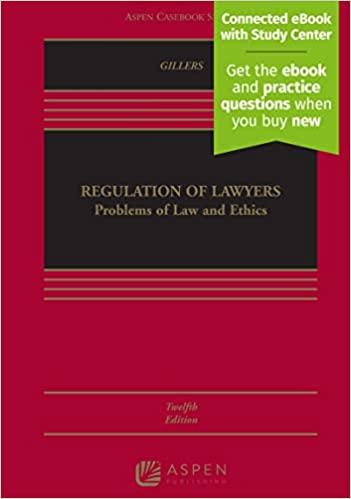Question
In high school, Shweta Srinivasan started a business providing landscaping services to homeowners in Bloomington, Indiana. Her services often included selling and applying fertilizer and
In high school, Shweta Srinivasan started a business providing landscaping services to homeowners in Bloomington, Indiana. Her services often included selling and applying fertilizer and grass seed, and planting trees and plants that she bought from commercial nurseries and resold to her clients as part of her services.
In college, Shweta started growing exotic flowers and plants as a hobby. As her hobby expanded over time, she began selling flowers and plants to people. After graduating from college, Shweta started her own commercial nursery and florist business under the name Lotus LLC.
Now in its sixth year, Lotus LLC's business has changed as it has grown. It no longer sells directly to individual customers. Instead, it grows and sells fresh cut flowers, plants, shrubs, and trees to a range of wholesale and retail businesses, including flower distributors, florist shops, garden stores, hardware stores, commercial landscaping businesses, and grocery stores. A significant part of Lotus's business is sales to four large chains of such stores, consisting of a large number of small transactions over the course of the year as seasons change. Unlike Shweta's landscaping business serving only customers in Indiana, Lotus LLC distributes and sells products to businesses in 13 states across the middle of the United States.
As Lotus LLC's business grew, Shweta started using a sales invoice form with pre-printed terms to streamline the thousands of sales transactions it handled each year. Shweta soon discovered discrepancies between Lotus's sales invoice form and the purchase order forms used by some of its customers, particularly its four large chain-store clients. Shweta also learned that, under the UCC's "Battle of the Forms" rules, Lotus could end up being bound to a contract on terms different than those printed on its sales invoices, even if the pre-printed language expressly conditioned stated that Lotus's acceptance was expressly conditioned on acceptance of the terms in Lotus's form. Describe three (3) different strategies that Lotus can use to address the risk, under the UCC "Battle of the Forms" rules, that Lotus will be bound to contracts with terms that are different than the terms in Lotus's acceptance. Make sure to explain your reasoning.
Step by Step Solution
There are 3 Steps involved in it
Step: 1

Get Instant Access to Expert-Tailored Solutions
See step-by-step solutions with expert insights and AI powered tools for academic success
Step: 2

Step: 3

Ace Your Homework with AI
Get the answers you need in no time with our AI-driven, step-by-step assistance
Get Started


